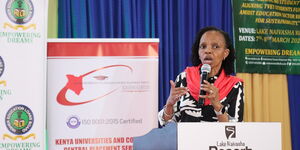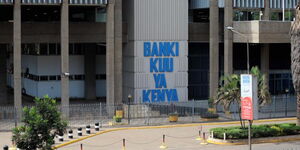The Government has announced that 2,421 university graduates would be deployed to various ministries, departments and agencies under the State internship programme.
The program, which begins on Monday, January 25, will see the interns posted across 290 constituencies in the country.
The State internship programme draws interns from a range of courses including engineering, business, education, humanities, education, animal sciences.
However, the number of recruits has registered a 23.1 per cent drop compared to 3,150 interns enrolled in the program the previous year.
The drop, attributed to lack of funds, further dims the chances of scores of university graduates who banked on the opportunity.
Majority of the interns usually apply for the programme with the hope of getting absorbed in the formal job sector.
During last year's enrollment, more than 39,000 applications from university and college graduates were rejected.
Treasury Cabinet Secretary Ukur Yatani attributed the drop in intake to a ballooning wage bill that has taken a toll on the government's finances.
According to a previous report from the Treasury, the public wage bill had been projected to rise to Ksh830 billion from Ksh795 billion.
Yatani had further warned government offices against employing more staff and interns unless approved by the National Treasury.
The paid internship program had been initiated by President Uhuru Kenyatta in 2017 as part of his agenda to boost one million jobs per year.
However, the unemployment rate among the youth has risen especially due to the impact of the Covid-19 pandemic.
Data presented by the Kenya National Bureau of Statistics (KNBS) in June 2020 revealed that over 700,000 youth were rendered jobless due to the pandemic.
This has seen the government implement countermeasures to curb the unemployment crisis in the country. In August 2020, the Generation Unlimited Kenya (GenU Kenya) initiative was launched by President Kenyatta.
The initiative is a global multisector partnership designed to address the need for expanded education, training and employment opportunities for young people aged between 10 and 24.
The government also launched the Ajira Digital platform meant to target at least one million jobs for the youth who would earn a decent wage from the platform annually.












